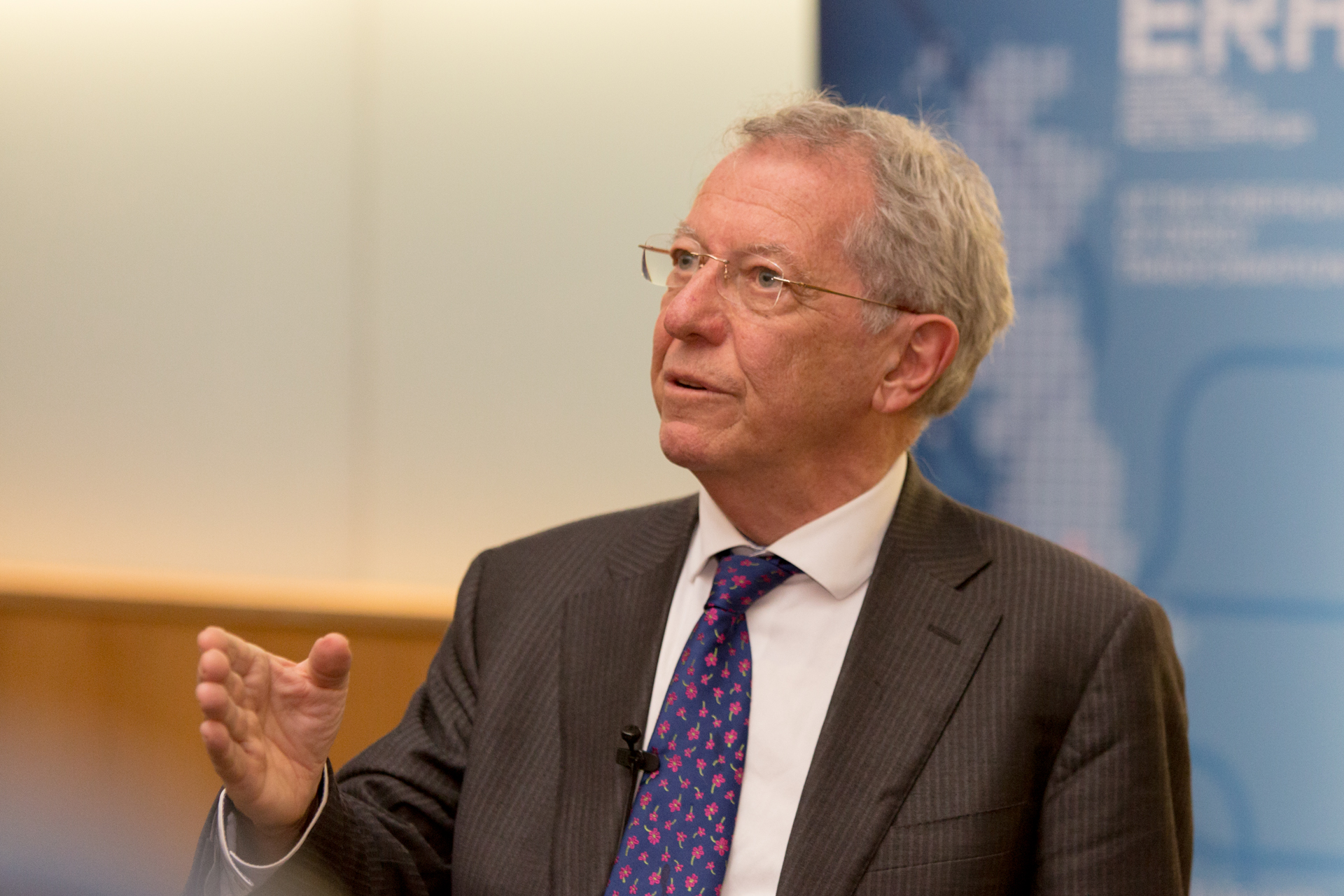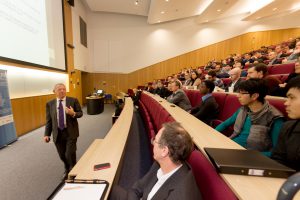
February 13, 2017, by Shirlene Campbell Ritchie
Climate Change: The Biggest Opportunity of Our Age
We’re now seeing the biggest opportunity of our age – this was the key message put forward by the UK Foreign Secretary’s Special Representative for Climate Change, during a visit to The University of Nottingham.
Professor Sir David King HonFEI delivered a lecture to students, academics and industry professionals, stressing the importance of the agreement reached at the Paris Climate Conference of Parties (COP21).
The way forward
Sir David also discussed the Post-Paris Energy Transition where he stressed that resolving the financial crisis can help climate policy – investment should go towards decarbonising national economies and international transportation at an accelerated pace. More importantly, commercialisation of clean energy is the way to go.
He pointed out that the most important thing taking place now is the falling cost of clean energy technologies such as land based wind farms and modelled battery costs, and he feels that the most economical way forward is clean energy.
In 2014, more renewable energy was installed worldwide than fossil fuel and 2015 saw £367 billion invested (in this industry) globally.
Here in the UK, there are some 11,500 companies employing 260,000 people who are involved in the low carbon economy.
According to Sir David, seven initial areas for collaborative research have emerged. These include:
- Smart grids, electricity and heat storage
- Electricity access to off grid communities
- Capturing sunlight to create liquid fuels
- CCUs
- Second generation biofuels
- Material to replace steel, concrete
- Heating and cooling (the British government is taking the lead in this)
These programmes are broadly focused and present a wide range of opportunities. Sir David encouraged the community at the University of Nottingham and lauded the work being done as part of the Energy Research Accelerator (ERA). He added that the University is striving to deliver essential research and postgraduate skills.

Sir David put forward the message that it’s time to transform world economies toward a more sustainable low-carbon future
Innovative technology
Sir David highlighted some of the innovative technologies that have emerged recently, such as the VariaLift Airship – his personal favourite. He stressed that we should facilitate getting these ideas into the marketplace.
To sum up, Sir David said we’re now being presented with the biggest opportunity of our age – we must transform world economies away from fossil fuels toward a more sustainable low-carbon future.
The clean energy market will be worth £2 to £3 trillion by 2030. There is no business in the world like this – chips and pcs don’t come close and it represents an enormous opportunity – he believes it can be the new wealth creator.
The session came to a close with a lively Q&A session covering why the UK has maintained nuclear power, America’s commitment to Paris and our ageing energy infrastructure, among other topics.
National pilot
The lecture was part of a day-long visit to Nottingham during which Sir David visited Trent Basin, the national pilot for the ERA project, and the Geo-Energy Testbed Facility at Sutton Bonington.
Dr Emma Kelly, Chief Operating Officer for Energy Research Accelerator, said: “Sir David’s visit has reinforced ERA’s position as a major success in securing government and industry funding to create a cross-disciplinary hub of technology research and energy talent which brings the region’s combined research expertise together with the surrounding industrial base.”
“Sir David agreed that we need to be prepared to back multiple solutions (and multiple demonstrators) to address the energy challenge. Large scale demonstrators such as the Trent Basin, the European Bioenergy Research Institute, the GeoEnergy Test Bed and the Birmingham Thermal Belt will test real-life applications of the technology ERA produces, ensuring they can be delivered effectively and affordably.”
No comments yet, fill out a comment to be the first

Leave a Reply